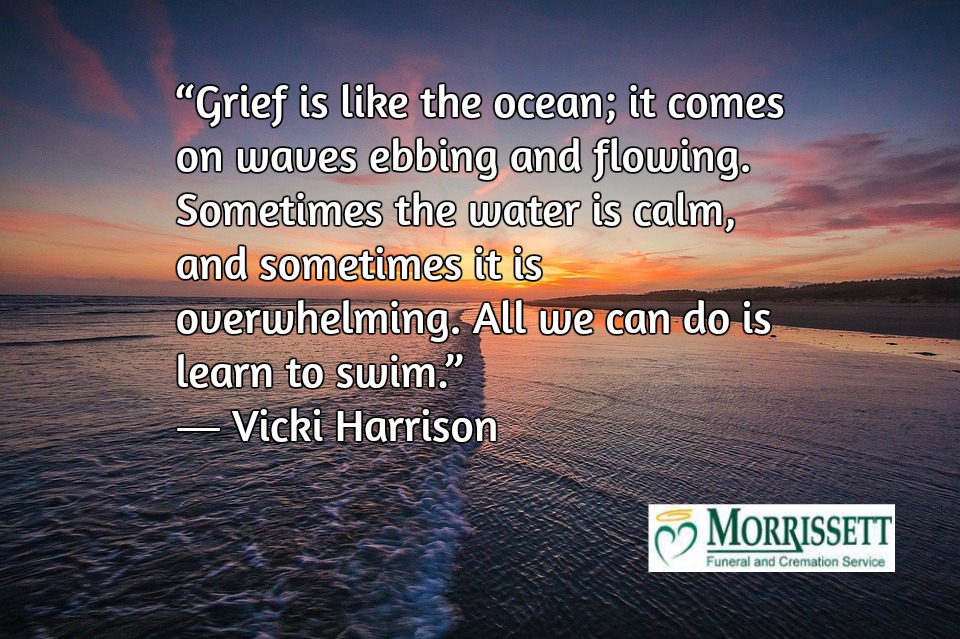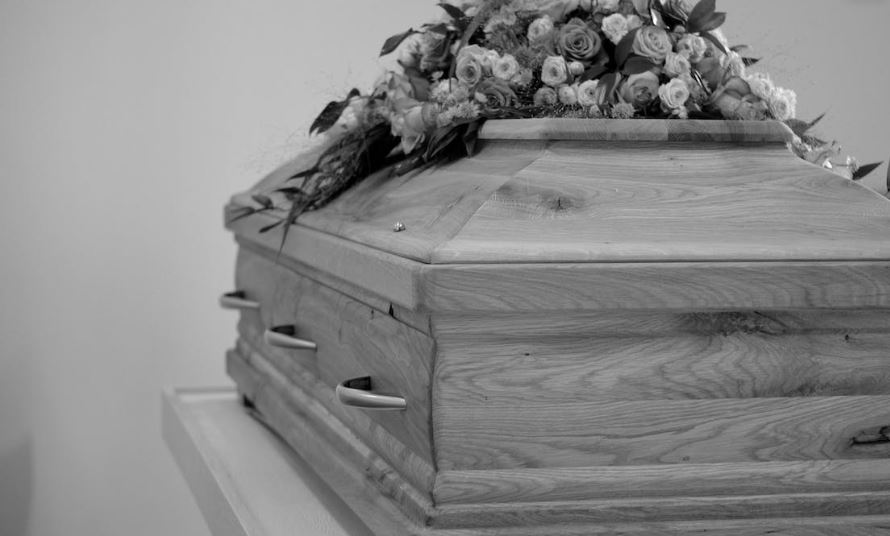Riding The Waves of Grief

Guiding Children Through Grief and Loss
June 8, 2017
The Last Gifts
August 11, 2017
To be human is to love and with that comes the possibility of loss. When a death occurs, each person at some point in their lives will experience grief but everyone has their own way of grieving too. There’s no correct way to grieve; it’s all about what we need as individuals through those difficult times so there are many different ways for us during these hard periods which can sometimes feel like an overwhelming process
Grief is a process that we all go through at some point in our lives. It’s not something you can simply get over or “move on from.” Grief is an emotion that never fully goes away, but instead comes and goes in waves. Sometimes the waves are small and seem to take less of your attention, while other times they come crashing down onto you with such force it feels impossible to keep your head above water. However, there are ways to help manage these waves so that they don’t knock you out completely.
This blog post will cover what grief is, how it differs for each individual person, tips for managing grief when it becomes too difficult to cope with on one’s own, and healthy ways of coping as well.
Morrissett Funeral & Cremation Service understands that the families we serve need continued support after the death of a loved one. Our Aftercare Director/Community Care Coordinator, Greg Webber, offers grief support to the families we serve at no additional cost. Our bereavement support groups are also available to the community-at-large, at no charge, depending on space availability.
Why does grief come in waves?
Grief comes in waves because it is like an oscillation between two forms of life: the old one, where habits are known and present; and a new form of life with changing dynamics. Grief causes pain as an unforeseen event happens, which can be seen through changes within oneself after death or loss. The healing process begins when these oscillations lessen over time by gradually restoring balance to our lives again.
These are some common grieving behaviors:
- Non-stop crying
- Sleep Difficulty
- Absentmindedness
- Social Withdrawal
- Loss of Food Appetite
- Crankiness
When will the next waves hit?
This is a tough question to answer as there are no definite answers. However, it could happen at any time and if you experience something that reminds you of your loss or visit a place with many memories then your grief can resurface which may lead to another wave. Eventually, though the waves will get smaller and farther apart
Coping with Waves of Grief
Talk to others about your feelings and thoughts, take time for yourself by writing them down or journaling in order to process the loss of a loved one. Give yourself grace because it is not an easy journey you are embarking on; this will be both hard work and patience-you need as much as possible at your disposal before setting out on either route (talking through things with friends/family or going solo). Find comfort in spirituality during difficult times–this could mean sharing beliefs with other like minded people who have been there too, turning inward for help from religion when life seems bleakest, reflecting upon faith that keeps us buoyed up even though we can’t see what lies ahead just yet.
One way in which a person can experience grief is through an attack. An attack may range from very profound, like the night terror that causes unexpected sleep paralysis and intense feelings of fear to something as small wave nostalgia tinged with sadness; whether they are minor or severe, these attacks usually come along with anxiety. Anxiety itself isn’t one of the stages in grieving but throughout bereavement, you realize someone who has anchored your sense of self no longer being there could lead to such emotions during this difficult process
When and How to Get Help
One of the biggest signs that you are experiencing complications, or prolonged grief is if you can’t move on in a reasonable amount of time. Everyone processes their loss differently and typically people will progress through acceptance, feeling like they have lost something important to them, adjusting to life without this person who meant so much to them while also developing new relationships within one year. If it’s been over a year since your loved one died but these stages don’t seem any closer than when they first started (or worse) then there may be complications with how grieving has progressed for you which could lead to more intense feelings as well as other problems down the line such as depression or anxiety from not being able to properly deal with an emotional situation
If you are experiencing any of these signs, it may be time to reach out and get help. If your grief has crossed the line from normal to complicated, a healthcare provider can determine whether this is due to major depression or another issue altogether. Treatment will allow you to once again feel better about yourself as well as resolve feelings regarding loss with therapy and medication if needed.
Conclusion
So what can we do instead? We need to take care of ourselves. Find activities that give us strength and healing. Go for a walk, connect with our “safe” people, get enough rest, or try out some new hobbies such as art-making or cooking. It’s also important to find times where you feel spiritually centered; praying/meditating might be one way to achieve this goal! Finally, it is crucial never forget the ways your loved ones impacted YOUR life in their own special way–talk about them often so they stick around forever even after death takes hold from its grasp on their soul”. This will help keep YOU strong when waves return because then you won’t drown again.
“Grief is like the ocean; it comes on waves ebbing and flowing. Sometimes the water is calm, and sometimes it is overwhelming. All we can do is learn to swim.”
― Vicki Harrison



